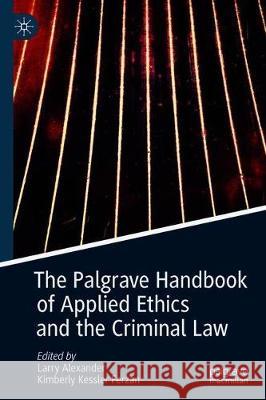The Palgrave Handbook of Applied Ethics and the Criminal Law » książka
topmenu
The Palgrave Handbook of Applied Ethics and the Criminal Law
ISBN-13: 9783030228101 / Angielski / Twarda / 2019 / 829 str.
The Palgrave Handbook of Applied Ethics and the Criminal Law
ISBN-13: 9783030228101 / Angielski / Twarda / 2019 / 829 str.
cena 724,58
(netto: 690,08 VAT: 5%)
Najniższa cena z 30 dni: 693,97
(netto: 690,08 VAT: 5%)
Najniższa cena z 30 dni: 693,97
Termin realizacji zamówienia:
ok. 16-18 dni roboczych.
ok. 16-18 dni roboczych.
Darmowa dostawa!
Kategorie BISAC:
Wydawca:
Palgrave MacMillan
Język:
Angielski
ISBN-13:
9783030228101
Rok wydania:
2019
Wydanie:
2019
Ilość stron:
829
Waga:
1.34 kg
Wymiary:
23.39 x 15.6 x 4.45
Oprawa:
Twarda
Wolumenów:
01
Dodatkowe informacje:
Wydanie ilustrowane











